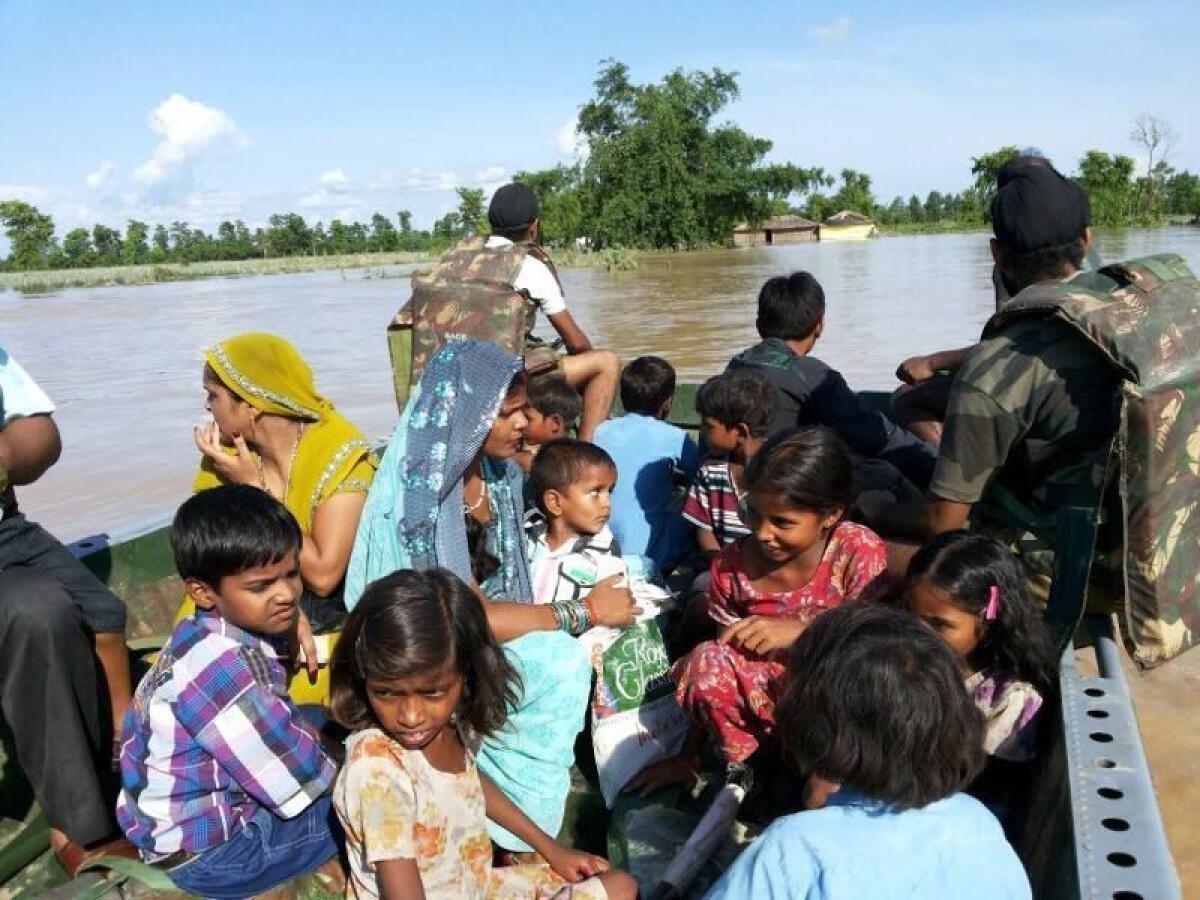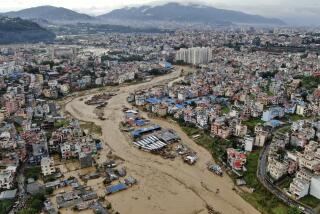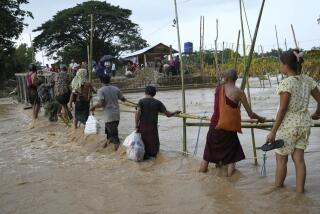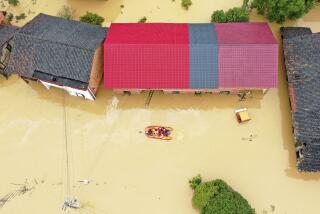India flooding kills nearly 600 and leaves thousands stranded

NEW DELHI – Nearly 600 people have been killed by devastating monsoon flooding in northern India and 50,000 remained stranded Friday with more rain in the forecast, authorities said.
Flooding in the mountainous Himalayan state of Uttarakhand coincided with a period when 60,000 Sikh and Hindu pilgrims were trekking to four sacred sites in the region. Many pilgrims, tourists and local residents were trapped as roads, bridges and houses were washed away.
“We would do the best we can to evacuate all those stranded,” Air Marshal S.B. Deo told reporters.
Local media dubbed the disaster a “Himalayan tsunami” that could ultimately claim hundreds, even thousands, more lives.
Vijay Bahuguna, Uttarakhand’s chief minister, told the local CNN-IBN news channel late Friday that 556 bodies had been recovered from mud and debris and more could be buried.
“It’s very tragic that so many people have died in this calamity,” he said.
In the Hindu calendar, Tuesday was celebrated as the anniversary of the Ganges River, considered a god, descending to Earth.
News video showed cars, trucks and three-story houses swept away by the raging river, and the area around Kedarnath, devoted to Lord Shiva, nearly flattened, with corpses strewn about and no signs of life. Authorities said many corpses were swollen and badly damaged, making identification difficult.
Some 43 aircraft have been ferrying rescue workers, doctors, equipment, food and medicine into the area and moving people out, with about 33,000 rescued after many had become trapped after heavy rain over the weekend. Rescue operations have been hampered by the weather and about 500 roads and 200 bridges damaged or destroyed and the size of the area affected, more than 15,000 square miles.
In nearby Nepal, authorities said 39 people had died and 20 were missing.
Some people waiting for stranded loved ones complained that the government reaction was slow, disorganized and hampered by a lack of rescue equipment.
“We’re completely unhappy with the lack of preparation,” said Vamshi Varagani, a Hyderabad-based software engineer who had 15 relatives trekking to Kedarnath when the storm hit. “The government effort wasn’t nearly enough.”
Varagani said his family members walked some distance last weekend to a helipad only to find thousands waiting to be evacuated by too few helicopters. They then walked 55 miles over several days with limited food and some suffering from fever, to survive.
Uttarakhand lacked a Doppler radar, with ministries reportedly arguing over the purchase. A report by India’s national auditor in April said the state had virtually no disaster management plan and its management team hadn’t met since it was formed in 2007. “The state authorities were virtually non-functional,” the report said.
ALSO:
Nigeria’s Boko Haram insurgents striking schools, farms
Dead dolphin, dog meat festival rile China’s animal lovers
No alternative to two-state solution, visiting leaders tell Israel
mark.magnier@latimes.com
More to Read
Sign up for Essential California
The most important California stories and recommendations in your inbox every morning.
You may occasionally receive promotional content from the Los Angeles Times.










